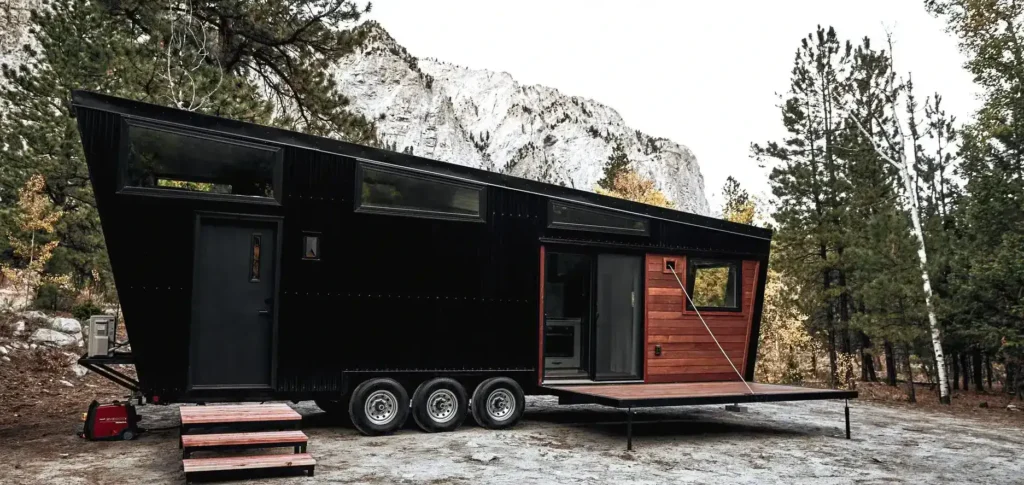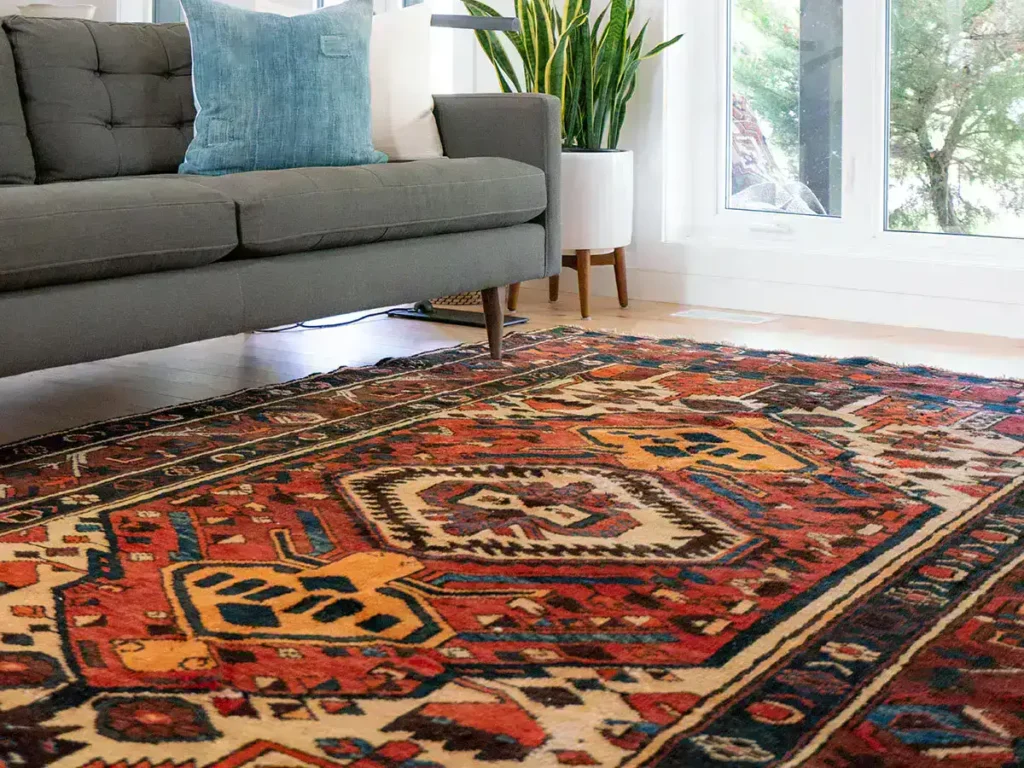A trailer home is less expensive than a regular house. The price varies with the size, amenities, and location. A single-wide trailer home will cost between $50,000 and $100,000, and a double-wide will cost between $120,000 and $160,000. The price typically does not include delivery but no additional fees such as land, setup, or utilities. Newer units with advanced features and custom designs will be more expensive than standard models.
Shoppers must also consider other expenses besides the house itself. If they do not have property, they can either rent or purchase a plot of land, which is added on. Connecting to utilities, setting up the home, and following local building regulations also cost more. Many include porches, garages, or fancy appliances, which add to the overall cost. Keeping all of these expenses in mind allows buyers to budget correctly and be surprised.
What Is a Trailer Home?

Produce trailer homes as prefabricated dwellings inside factories that transportation teams later shift to their permanent destination. A steel chassis supports trailer home construction, although permanent placement is typical for most homes. The term “trailer home” remains in everyday use, yet newly built homes, starting in 1976, are frequently referred to as “manufactured homes” after building codes became more stringent.
Various versions of trailers exist that differ in dimensions and pricing. There exist three fundamental classifications of trailer homes:
- Single-wide homes: the cheapest and the smallest.
- Double-wide houses: more visible, with more room and more amenities.
- Triple-wide homes: the most visible choice, with the most room and personalization.
Having established what a trailer home is, let us now consider how much it costs.
Cost of Trailer Homes
The cost of a trailer house depends on the dimensions, the variety of miscellaneous elements, and the customized selections. People purchasing trailer homes need to know that prices vary based on different types of trailers, as listed below:
Home type |
Average width |
Average square footage |
Average delivered cost |
| Single-wide | 14 – 18 feet | 500 – 1,500 | $60,000 – $90,000 |
| Double-wide | 20-36 feet | 1,500 – 2,500 | $120,000 – $160,000 |
| Triple-wide | 28-54 feet | 2,000 – 3,600 | $200,000 – $250,000+ |
Factors Affecting the Cost of a Trailer Home
While the prices above give you a general idea, several factors can influence the final cost of a trailer home:
- Size of the Home: More extensive homes tend to be more expensive. For instance, a double-wide house, as opposed to a single-wide one, will cost more due to additional square footage. Triple-wide houses are the priciest because of their size, delivery, and setup complications.
- Customization and Features: The cost can increase if you personalize your trailer home with high-end features, such as improved flooring, newer appliances, extra rooms, or better exterior finishes. These may range from $10 to $150 per square foot.
- Location and Transport Fees: Transporting a trailer home to your location can be expensive, especially for larger homes. Depending on the distance and complexity of the delivery, the cost of moving a home can range from $2,000 for a single-wide to $14,000 for a triple-wide.
- Site Preparation Costs: Land preparation for installing the trailer home is another cost. Site preparation can include land clearing, grading, excavation, and foundation installation. Depending on your location and land, this can range from $4,000 to $47,000.
- Utility Installation Fees: Another expense is installing water, electricity, and sewer services on your trailer home. Depending on your property’s distance from the nearest utility lines, installation fees range from $6,000 to $34,500.
- Permits and Fees: Most locations have permits to put up a trailer home, and there could be impact fees you have to pay to recover the cost of public infrastructure. These fees range widely based on where you are, from $500 to $28,500.
Additional Costs of Owning a Trailer Home
Apart from the initial charges, other costs of possessing a trailer home are:
- Insurance: Home trailer insurance costs between $500 and $1,000 annually, depending on your location and the age of your home.
- Taxes: The property taxes may be between $5,000 and $15,000 a year if you own the land.
- Re-leveling: Mobile homes can move over the years, and you might need to have them re-leveled at a cost of $500 to $1,000.
What Makes Trailer Homes Affordable?
The affordability of trailer homes attracts people seeking reasonable housing costs, as these houses cost less than conventional homes. Buyers also like trailer units because they offer reduced house prices and minimal maintenance and electricity costs. New production trailers incorporate two key energy-saving elements: advanced insulation systems and power-efficient built-in features.
Pros and Cons of Trailer Homes
Similar to housing forms, trailer homes also have both advantages and disadvantages. Here is a summary at a glance:
Pros:
- Affordable: Buying a trailer home costs less than purchasing a site-built residence.
- Fast Setup: You can move into a trailer home much sooner than a site-built house that takes months to complete.
- Efficient on Utility Bills: Today’s trailer homes feature energy-saving features, making utility bills smaller.
- Flexible: A trailer home is transportable if you ever do decide to move, so it is a flexible form of living.
Cons:
- Depreciation: As opposed to most houses, trailer homes depreciate with time.
- Limited Space: Single-wide homes are cramped, and even double-wide homes are tight on space relative to standard homes.
- Land Costs: You’ll need to purchase land or rent a space in a community, which adds to the overall cost.
- Financing Concerns: Trailer home financing could be limited since trailer homes are considered personal property, not real estate.
Total Cost Breakdown
The complete costs associated with trailer home acquisition and installation match this context. Expenditures recorded in this answer fail to incorporate land payment.
Cost Factor |
Average Cost |
| Trailer Home (Double-wide) | $116,000 – $150,000 |
| Full-Service Delivery | $4,000 – $10,000 |
| Site Preparation (Land Clearing, Foundation) | $7,000 – $47,000 |
| Utility Installation | $6,000 – $34,500 |
| Permits and Fees | $7,500 – $28,500 |
| Total Installed Cost | $143,000 – $268,000 |
Additional Costs of Owning a Trailer Home
Other than the initial cost of purchasing and placing a trailer home, other monthly costs need to be factored in:
- Insurance Trailer: Home insurance premiums, on average, range from $500 to $1,500 a year, depending on the home value, location, and age.
- Taxes: You will have to pay property taxes if you own the property on which your trailer home is located. These taxes will range from $5,000 to $15,000 a year, depending on where it is and the value of the land.
- Re-leveling: Your trailer house will inevitably shift and settle with time, causing problems with doors, windows, and furniture. Releveling will cost between $500 and $1,000.
- Skirting protects the underside of your trailer home from moisture, bugs, and the weather. Depending on the materials, installing skirting costs between $1,000 and $4,000.
Financing a Trailer Home
Finishing a trailer house differs from funding a traditional home structure. Trailer homes qualify as personal property, and this regulatory designation means they may not allow access to mortgage loans for real estate. Three financing alternatives exist for trailer home purchases.
- FHA Loans: The Federal Housing Administration (FHA) loans may be used to purchase trailer homes and land. The loans are offered with less down payment and strict credit score requirements.
- USDA Loans: You can obtain a USDA loan while buying a trailer home in rural areas. They have no down payment and submarket interest rates but are subject to income constraints.
- VA Loans: Families and veterans are eligible for a VA loan, which requires no down payment or mortgage insurance. But there are specific requirements.
- Chattel Loans: Chattel loans are collateralized against the trailer home rather than the land. They are shorter-term and more interest-intensive than traditional mortgages, but buyers with worse credit ratings often use them.
Conclusion
Trailer homes are outstanding housing options since they offer high affordability and flexible residential arrangements. Before purchasing a trailer home, residents must include expenses affecting single-wide, double-wide, and triple-wide home costs. The implementation of strategy-based planning enables future homeowners to obtain affordable trailers covering the expenses for the base home and site setup and delivery utilities and necessary permits.
Before buying a trailer, you must research, request multiple quotations, and then budget for the constant homeownership expenses involved with trailer residence. A suitable budget and proper planning provide an economical route to a trailer home residence with your family.
FAQS
1. What is the difference between a mobile home and a manufactured home?
A mobile home was constructed before 1976, whereas a manufactured home was built after 1976 and is subject to more stringent government building codes.
2. How long do trailer homes last?
Trailer homes last 30 to 55 years, depending on the construction quality, maintenance, and weather conditions.
3. Can you finance a trailer home like a traditional house?
Financing a trailer home is distinct from funding of a conventional house because it’s regarded as personal property instead of real estate. Nonetheless, FHA, USDA, VA, and chattel loans are possible.
4. Are trailer homes appreciated?
Trailer homes tend to depreciate like automobiles. Nonetheless, if land is owned, it can be appreciated, contributing to the overall property’s value.
5. What are the maintenance costs for a trailer home?
Insurance, taxes, re-leveling, skirting, and the occasional repair are maintenance expenses for a trailer home. The cost is based on the size and condition of the house.


